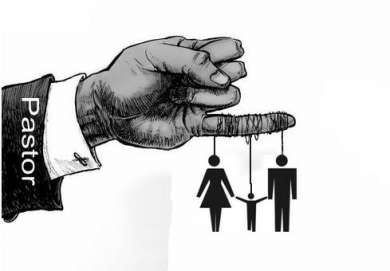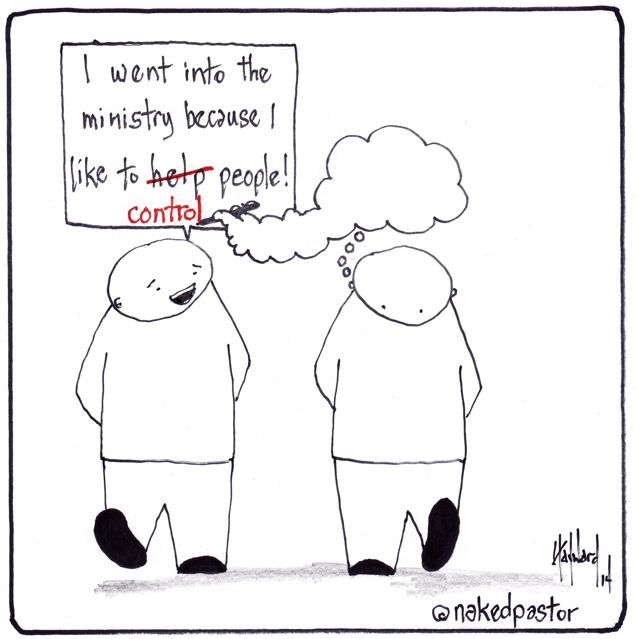Are you a Christian? Am I a Christian? What does it take to be a Christian? These are questions that likely have been asked for millennia, nearly two to be exact. And of course, the answers change daily based on who you ask and what that person’s belief set is, of course, is strongly influenced by what denomination they choose to belong to.
The amazing thing is – as a Christian, one simply needs to look to the Scripture to answer their own question, and of course, the example of Christ that is set before us, and by His disciples, namely Paul. Most importantly, we seek the Spirit of God to answer these questions for us, as Scripture exposes to be the right (and best) way to find answers.
“As for you, the anointing [the special gift, the preparation] which you received from Him remains [permanently] in you, and you have no need for anyone to teach you. But just as His anointing teaches you [giving you insight through the presence of the Holy Spirit] about all things, and is true and is not a lie, and just as His anointing has taught you, you must remain in Him [being rooted in Him, knit to Him].” ~ 1 John 2:27, AMP
The anointing, that remains in you permanently (sealed with the Spirit until the day of Redemption, Ephesians 1:13) is there to teach you, and to be a guide to you in answering these questions, and more. Some people call it ‘conviction’, that feeling you get in your conscience, that pricking feeling, whether or not you are on the right path.
When being asked to answer this question, I am always reminded of a single Scripture, and it is almost always my answer;
“If any of you lacks wisdom [to guide him through a decision or circumstance], he is to ask of [our benevolent] God, who gives to everyone generously and without rebuke or blame, and it will be given to him.” ~ James 1:5, AMP
So often, we as humans need/want another human to tell us what to do. We really can be sheep some times. And likewise, as humans, we believe it is our position to tell other humans what to do. This is especially true in religious settings.
From the dogmatic and fundamental Christian mindset, it is our duty (requirement, commandment) to share the Gospel through the means of telling people when/where they have failed or by telling them how they are wrong, rather than encouraging and leading them through love. (Just think of those street signs proclaiming who is going to hell, which I highly doubt has saved anyone.)
“Imitate me, just as I imitate Christ.” ~ 1 Corinthians 11:1, AMP
For others, sharing the Gospel is not a forced issue, but something that comes organically through their human interactions, anywhere, and at any time. Their goal isn’t to point out the sinner, but to point out Christ by example to the sinner, so that others may imitate and be provoked to good works of faith because of their lifestyle (the one providing the example). After all, Scripture teaches us;
“By this everyone will know that you are My disciples, if you have love and unselfish concern for one another.” ~ John 13:35, AMP
Likewise, the inverse is also true;
“Beware of the false prophets, [teachers] who come to you dressed as sheep [appearing gentle and innocent], but inwardly are ravenous wolves. By their fruit you will recognize them [that is, by their contrived doctrine and self-focus].” ~ Matthew 7:15-16, AMP
Notice the intense difference? Love (focused on others) vs ‘their contrived doctrine and self-focus’. (Look at my intelligence and ability, you should do what I say!) So my point is, Scripture makes it clear your love for others, which produces action and behaviors that benefit others, is how you serve Christ, and one another, and is in fact, being Christian. Scripture also teaches us;
“No one has greater love [nor stronger commitment] than to lay down his own life for his friends.” ~ John 15:13, AMP
Now, this doesn’t necessarily mean that you will/must physically die in order to fulfill this passage, although that may and is included in the context, by way of exemplifying Christ dying on the cross for our atonement. But it also includes your entirety. That can include your time, prayers, finances, food, clothing, shelter, heart, friendship, commitment, ear, counsel, and, most of all, love.
And most importantly, of all arguments in answering this question, is that YOU ARE the CHURCH. I am the Church. Every believer, sealed with the promise unto the day of Redemption is the CHURCH.
I remember a few weeks back meeting an older couple while sitting at the PUB (I recently wrote about this in my article Neither do I Condemn You.) and through our conversation, I learned that this wife no longer believed in Christ due to some abuse and misfortune that took place in her past. By the end of the evening, she was thanking God for our meeting, we all felt it was ordained, by God, and together we were able to minister to each other in faith-filled connection, in a Christian way.
Was that Church? There was no preacher. No altar. No offering plates. No communion. No music, choir or soloist. No piano, no organ, no guitar, bass or hymnal. There was no weeping, shouting, tongues, or interpretations. But it was Church in the truest sense of what we are to do as Christians – minister to others and exemplify the LOVE of Christ.
But am I Christian if I don’t go to Church?
Yes – Absolutely, and unequivocally, IF you are busy about your Fathers business, exemplifying the love of Christ to others, preferring others, supporting others, helping others, and being like Christ (the definition of the word, after all, is being Christ-Like). Look;
“Pure and unblemished religion [as it is expressed in outward acts] in the sight of our God and Father is this: to visit and look after the fatherless and the widows in their distress, and to keep oneself uncontaminated by the [secular] world.” ~ James 1:27, AMP
And the reality is, via (non-commandment) examples of Scriptures, it is (and was in antiquity) quite NORMAL for Christians to gather and assemble, for the purpose of prayer, and support, and edification. In fact, the truest sense of the word ‘ekklesia’ originated as a Greek political assembly that came together, in body, to debate politics. This, of course, was later the word used to describe Judaic/Christian gatherings, wherein Synagogue, the Law of Moses was presented and debated, and later, Christian gatherings.
It is wrong (and equally wrong for someone to assume my teachings are anti-Assembly) to say you shouldn’t go to an assembly (today this is known as Church), or that there is no value in assembly. It is equally wrong to say that if someone doesn’t go to church (assembly) regularly, that they are not Christians.
And, let’s just be honest – people today (often) say that it is necessary for the growth and maturing of the Spirit of a person to go to Church. (eye roll) And then when challenged to provide Scriptural evidence of this (considering most early disciples were in such rural areas that ‘assembly’ was a rather rare thing), these same people may say, “But how can you edify and support one another and provoke each other to good works if you are not assembling together!”
This is likewise short-sighted and inaccurate, based on the average Sunday AM assembly of Christian ‘church’ in the North American modern era model. The majority of Churches today gather on a Sunday AM, at a predetermined time, with a predetermined schedule, a predetermined speaker with a predetermined message, preceded by predetermined songs and followed up by predetermined prayers, altar calls, offerings requests, program announcements, and dismissals, clean-up and prep for next Sunday AM.
If one attends church, listens to a single man (or woman) exercise a gift of teaching, plop $20 in the plate and goes out to lunch – how Christian are they? No more, or no less, than one who doesn’t attend that service.
I’m not about to announce my following of a man, because I follow no man, but I have admiration (in part) for a man named Francis Chan, who at one time was founding pastor and leader of a 6,000+ member mega-church, who one day realized, it was all wrong and gave it up.
What was wrong? Consider this question and answer from Francis;
Cornerstone was a thriving church. Why did you resign from leading it?
We were just looking at scripture and seeing so many commands we weren’t obeying as a church. The church was really built around a speaking gift and a sermon, which is what a lot, maybe all, churches at that time were built around – and, you know, we would look at scripture and go: “Gosh, there should be so much more interaction.”
One of the questions that I asked was: “Am I part of the problem? Do people want to come and hear a sermon rather than use their spiritual gifts because I’ve trained them for that?” Why don’t I consider moving on to a more unreached place and starting something new that was reproducible, more like the underground Church in China? Something that didn’t depend so much on me but on the whole body of Christ.
Francis goes on (you can find his interviews on YouTube, Google, etc.) to describe that biblically, ALL members were to exercise a gift. The problem is, modern ‘church’ is focused around showing up and listening to one man exercise a gift and then going home, reaping the benefits but putting nothing it, and frankly, most churches/pastors don’t WANT you speaking up.
The blatant reality is that attending, and not attending, are equally valid, if you are grounded in faith in Christ, at exercising the gift’s he gave you in order to multiply and add to the Kingdom (create disciples).
“But do not be called Rabbi (Teacher); for One is your Teacher, and you are all [equally] brothers. 9 Do not call anyone on earth[who guides you spiritually] your father; for One is your Father, He who is in heaven. 10 Do not let yourselves be called leaders or teachers; for One is your Leader (Teacher), the Christ. 11 But the greatest among you will be your servant. 12 Whoever exalts himself shall be humbled; and whoever humbles himself shall be raised to honor.” ~ Matthew 23:8, AMP
What is also true is that one cannot truly fulfill the commandments of Christ as a silo, a solo warrior, off alone, never connecting, interacting and edifying with other believers.
“I am giving you a new commandment, that you love one another. Just as I have loved you, so you too are to love one another.” ~ John 13:34, AMP
So yes – one can be a Christian without attending ‘church’, a building, with a program (accompanied by a desperate need for you to drop money in the offering plate). However, you may not be the best YOU, you can be, in Christ, if you are not regularly, and purposefully, connecting, sharpening, learning, or teaching, with other believers of your Faith.
For me personally, I have daily video calls with other friends and believers where we exhort and teach each other, encourage each other, and more. I have weekly meetings with people of faith, and I purposefully seek out ways to fulfill the commandment of Christ (love one another), but I do not regularly attend ‘Church’. Am I a Christian?
That’s up to God.
 Editorial Note: The following is reprinted with permission from Eleanor Skelton’s blog. It was originally published on March 11, 2015 as part of a series.
Editorial Note: The following is reprinted with permission from Eleanor Skelton’s blog. It was originally published on March 11, 2015 as part of a series. 



 But does the church belong there, and when I say church, I mean the rules, dogmas, and wishes/commands of the pastor. For instance, in the Oneness Pentecostal church, women are forbidden from
But does the church belong there, and when I say church, I mean the rules, dogmas, and wishes/commands of the pastor. For instance, in the Oneness Pentecostal church, women are forbidden from  What has made it worse was that around 2015, the churches non-accredited private Christian school (which is just a fundraising and indoctrination arm of the church) went digital and changed curriculum, which required families with children in the church to purchase Chromebooks for their students. I’m a huge fan of digital, so this was a brilliant move to me, having children living like they were in the Little House on the Prairie times – they needed to be introduced to modern technology – but then the insidiousness of home invasion began anew. It was required that monitoring software was placed onto each Chromebook (which was not church/school purchased) so that school staff would be alerted to any young person infracting the church rules.
What has made it worse was that around 2015, the churches non-accredited private Christian school (which is just a fundraising and indoctrination arm of the church) went digital and changed curriculum, which required families with children in the church to purchase Chromebooks for their students. I’m a huge fan of digital, so this was a brilliant move to me, having children living like they were in the Little House on the Prairie times – they needed to be introduced to modern technology – but then the insidiousness of home invasion began anew. It was required that monitoring software was placed onto each Chromebook (which was not church/school purchased) so that school staff would be alerted to any young person infracting the church rules. In Family Class, which if you had children in the church’s (non-accredited) private school, you had to attend, they taught at times on what kind of
In Family Class, which if you had children in the church’s (non-accredited) private school, you had to attend, they taught at times on what kind of 